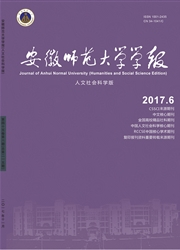

 中文摘要:
中文摘要:
长期以来,对中国基层社会的考察受到三种社区研究传统的影响。功能主义的社区研究以普通人的日常生活为中心,"满铁调查"传统强调的是对村落性质的考察与分析,而海外人类学的研究则试图从村落中透视"看得见"与"看不见"的国家。进入1980年代中后期之后,三种研究传统之间的互动性增强,甚至在研究立场、范式、方法上出现某种融合,形成一种"以村落为中心的方法论"。不过,这些研究或多或少地悬置了国家的自主性,对于还原或揭示中国基层社会的本来面目以及内在的发展规则可能构成限制。
 英文摘要:
英文摘要:
It has long been assumed that a recognizing of Chinese grass-roots society is influenced by three research traditions on community. The research tradition of functionalism pay attention to the lives of ordinary people, the research tradition of Japan south manchurian railway company investigation focuses on the nature of village, and the research tradition of overseas anthropology tries to understand the visible and invisible state. In the late of 1980s, the three research traditions merge into the methodology around the village However, the three research traditions more or less ignore the autonomy of state, and probably affect the reconsideration of Chinese grass-roots society.
 同期刊论文项目
同期刊论文项目
 同项目期刊论文
同项目期刊论文
 期刊信息
期刊信息
